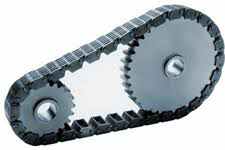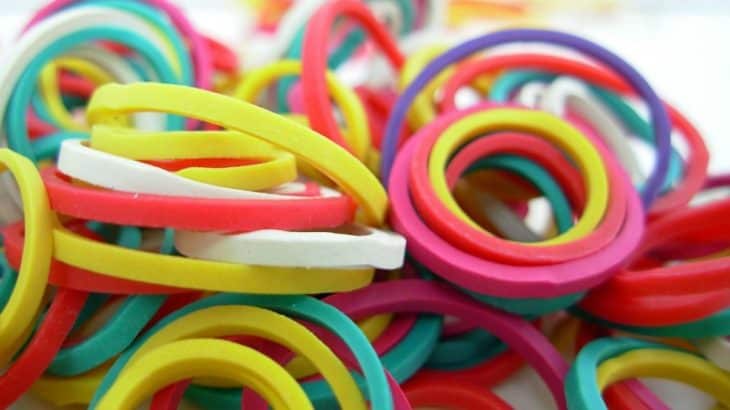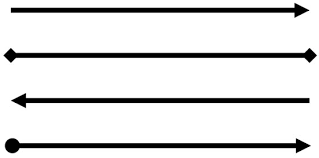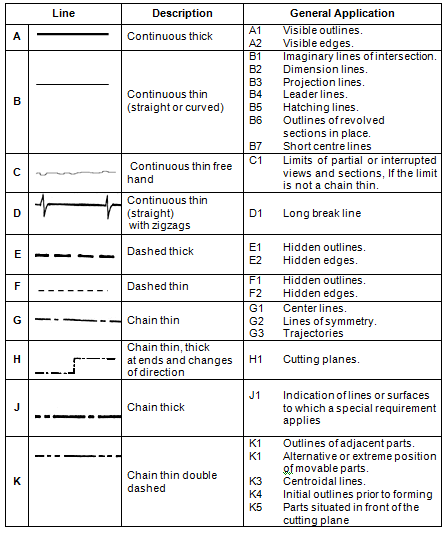 Alfred Ajibola
- 29th May, 2023 @ 02:45 PM
Alfred Ajibola
- 29th May, 2023 @ 02:45 PM
Topics in Basic Technology
Definitions of technology and their explanations Examples of technology Forms of technology explained with their differences Types of chain drive Types of belt drive Types of Ceramics Advantages and Disadvantages of Chain Drives Len Academy Questions for Basic Technology JSS3, 2nd Term Len Academy Basic Technology Questions, JSS3 Belt and Pulley Drives: Types of belt in belt drives Refrigerator as an electromechanical device, its parts and operations What is chain drive? Classification of chain drive What are Belt Drives? Advantages and Disadvantages of Belt Drives Type of Lines in Technical Drawings Len Academy questions for Basic Technology, JSS2, 2nd Term Len Academy questions for Basic Technology JSS2, 2nd Term, Part 2 What is Maintenance? Types of Maintenance Hardwood and Softwood - Characteristics and Examples What are Ceramics? Characteristics of CeramicsAcademic Questions in Basic Technology
The _____ functions to remove excess heat from the refrigerator.
A. Evaporator
B. Compressor
C. Condenser
D. Expansion Valve
E. Thermostat
F. Defrost System
A fluid or gas that runs through the compartments of a refrigerator is termed _____.
A. Water vapor
B. Liquid vapor
C. Frost
D. Refrigerant
E. Compressed water
F. Evaporated water
Current flows through a path called _____.
A. Electricity
B. Electric Route
C. Electrolysis
D. Transformer
E. High Tension
F. Electric Circuit
Googles are safety wears.
A. True
B. False
Which of the following is false concerning advanced ceramics?
A. They can be made from metallic oxides
B. They are very hard and durable
C. They are corrosion resistant
D. They are fired in the presence of oxygen
E. They are fired at a very high temperature of about 1700oC
F. They can be made from non-oxides such as carbides and borides
A thin continuous line is used for representing the followings except _____.
A. Intersections
B. Hatching lines
C. Long breaks
D. Diagonal line used to state plane surfaces
E. Leader lines
F. Back section lines

With regards to chain drives, the diagram above is a/an _____ chain.
A. Roller
B. Silent
C. Leaf
D. Flat-top
E. Detachable
F. Acceleration
A type of chain drive commonly used in bicycles is the _____ chain.
A. Roller
B. Silent
C. Leaf
D. Flat-top
E. Detachable
F. Acceleration
Technology is defined as the practical application of knowledge in a specific area. With regards to this definition, we utilize technology in different areas of our lives. These will include medicine, education, agriculture, communication, entertainment, sports, finance, religion, politics, workplace, business and commercial activities.
Please read more on examples of technology here.
Generally, we have two forms (or types) of technology. These are:
Underdeveloped technology refers to tools, devices, machines and equipment used in the old days, and will typically have lower qualities compared to its modern equivalent. Some of these underdeveloped technologies may even be considered as obsolete in modern times. They include well pulley, stone grinder, hourglass, transportation cart, quill pen, carbon paper, fax, typewriter, mud house, outhouse, bamboo house, audio and video cassette, walkman, catalog, use of firewood for cooking, kerosene lantern, steam locomotive, gunpowder, spear, animal skins for writing and so on.
You can read on belt and pulley drives here.
The table below shows some underdeveloped technology alongside their modern equivalents.
| Underdeveloped Technology | Developed Technology |
| Pulley wells | Pumping machines |
| Transportation carts | Cars, bus, aeroplanes |
| Canoe | Ferries, ship and submarines |
| Stone grinder | Blender |
| Firewood | Cooking gas |
| Mud and bamboo house | Mansions, duplex, bungalows |
| Hoe, shovels, cutlass and bolo | Tractor, plough, harvesters, mowers, balers, irrigation sprinkler, cultivator and reapers |
| Local firearms and gun powder | Beretta, glock, machine guns and bullets |
| Animal skin and parchment | Books, ipads, text editors on computers |
| Stones for making fire | Match, lighter, ferrocerium |
| Carbon paper | Photocopying machine |
| Steam locomotive | Electric and diesel locomotive |
| Audio and video casette | Blue-ray disc, MP3, MP4 |
| Hourglass | Clock |
| Quill pen | Ballpoint pen |
| Fax | Email and social media messaging applications |
| Kerosene lamp | Flashlight |
| Catalog | Computer and cloud databases |
| Outhouse | Water closet (WC) and flush toilet |
| Cathode ray tube in television | LED and plasma screens in television |
Please read the definitions of technology and their interpretations here.
Developed technology refers to any new invention that offers improvement on an existing technology, and will consequently provide better solutions to man's challenges.
Generally, developed technology tend to improve the quality of our lives by making our work much easier and faster. As an instance, Len Academy is considered a developed technology with regards to education. In this regard, it improves the academic life of students and teachers from the comfort of their home and learning place.
You can attempt Len Academy questions and answers on various subjects here.
Developed technologies are often referred to as high quality technologies. They are produced in recent times and will typically have upgraded versions released. They are made to be more efficient with regards to energy consumption. However, they can be quite expensive.
Examples of developed technology include high end mobile devices, speed train, jets, spaceships, internet, agricultural machines, drugs, vaccines, various medical equipment, online stores, instant repay in sports, video assists referee (VAR) in football, well constructed roads, modern building structures, social media applications like google, facebook, youtube, twitter, bing and so on.
Please read interesting facts for students here.
The table below shows the differences between undeveloped and developed technology.
| Undeveloped Technology | Developed Technology |
| They are ancient technologies produced in the old days | They are modern technologies produced in recent times. |
| They are regarded as low quality technology | They are considered as high quality technology |
| They consume more energy | They typically consume less energy |
| These technologies are often larger in size compared to their modern versions | These technologies are smaller in size since they can be made up of high end materials and integrated circuits |
| They are often less expensive | They are more expensive |
| They are usually slow and less efficient than developed technology | They are faster and more efficient through their mechanism of action |
| They are not as sleek and beautiful when compared to developed technology | They are often sleek and beautiful with great designs and finishes. |
| Some underdeveloped technologies are now obsolete | Developed technologies are currently in use |
| Examples of underdeveloped technology include well pulley, audio cassette, kerosene lamps and stone grinder | Examples of developed technology include smart phones and computers, automobiles, social media, internet and the world wide web. |
Kindly share this article via the links below:

Please click here to contact Alfred if you require any of the following services:
If you need a standard website at an affordable price.
Online training on the academic subjects: biology, chemistry and basic science.
If you require an advanced smart school management system (web application) for your school.
Click here to read on Len Academy Smart School Software.
Please click here to follow Len Academy on Google News.
Amazing facts in Basic Technology

Rubber bands last longer when refrigerated
Lighter was invented before matches
Johann Wolfgang Dobereiner was credited with the invention of lighter in 1826 while the match was made 3 years later
Volkswagen group of companies own some of the top cars of the world. These are Audi, Bentley, Bugatti, Ducati, Lamborghini and Porsche
Notable points in Basic Technology

Arrowhead lines are lines with pointed edges at one or both ends. The pointed edges are in the form of an arrow.
Arrowhead lines are used:
At the end of dimensional lines.
As measurement lines.
A thin continuous line could be a straight or curved line. However, the main point to remember is this: 'it is a tiny line with no dot or dashes within it'.
_______________________
A thin continuous line is used for representing the followings:
Projection lines
Hatching lines
Construction lines
Short center lines
Measurement lines
Diagonal lines used to state plane surfaces
Intersections
Leader lines
Backside section lines
Any action that involves the servicing, checking, replacing and repairing of an equipment, object or device is termed maintenance.
Maintenance has two main goals. These are:
To prevent a breakdown
To repair the breakdown
Below are the types of maintenance:
Preventive maintenance
Corrective maintenance
Predictive maintenance
Periodic maintenance
Reinforcement
Overhaul

Softwoods are often derived from coniferous trees, that is: trees with needle-like leaves, and whose seeds are covered in cones.
Below are some characteristics of softwood:
Most softwood have lower densities than hardwood (weighs lower).
In terms of price, they are often less expensive than hardwood.
Their growth rate is faster than hardwood.
Most softwood do not shed their needle-like leaves during the year. However, the softwood 'larch' and 'cypress' are exceptions.
They are less fire resistant.
The diagram below shows the various types of line in technical drawing, their description and general application:

Please read more on the types of line in technical drawing here